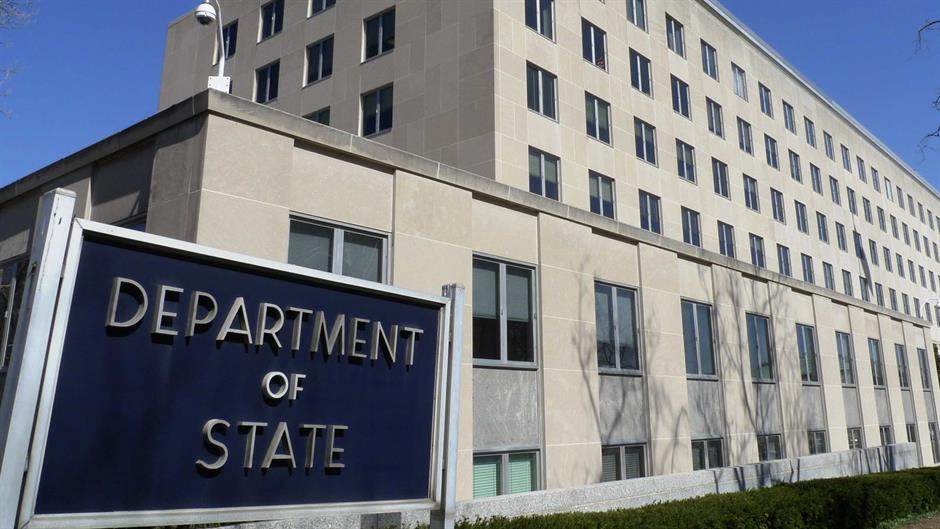
The recent “unwarranted speculation” on redrawing borders in the Balkans based on ethnicity “risks fostering instability in the region and evoked memories of past tensions,” the US State Department said on Monday.
The statement, by Spokesperson Ned Price, comes in light of the uproar caused by an alleged ‘non-paper’ that was published mid-April by the Slovenian news portal necenzurirano.si.
The ‘non-paper’ proposes Kosovo joining Albania and Serbia annexing parts of Bosnia’s Serb-dominated Republika Srpska (RS) entity, while the mostly Croat-populated parts of southern Bosnia and Herzegovina would become part of Croatia.
According to the Slovenian news portal, the country’s PM, Janez Jansa, sent the document to Brussels. Jansa, however, denies this.
The US State Department said that the United States is committed to supporting Western Balkan countries “on their path to European integration and membership in key European and Euro-Atlantic institutions” and “working with Western Balkan countries and our European partners to advance the governance, rule of law, and anti-corruption reforms – as well as the promotion of independent media and vibrant civil societies – that will reinforce the region’s European perspective and advance the long-standing goal of a Europe whole, free, and at peace.”
“We are committed to helping the countries of the Western Balkans deepen their own regional economic partnerships, achieve their climate goals, counter Russia’s energy coercion through diversification and clean energy development, and combat corruption and organized crime. We also want to help the region grow and prosper while protecting strategic infrastructure and industries against China’s malign practices,” it said.
The statement said that the US is “working with the international community to support Bosnia and Herzegovina in pursuing the reforms that will enable it to prosper and secure EU candidate status, including electoral reforms.”
It said that the Office of the High Representative (OHR), the official tasked with overseeing the civilian implementation of the 1995 Dayton Peace Agreement, “has contributed significantly to peace and stability” in Bosnia and that the US continues to support the important role of the institution in advancing the ‘5+2 agenda’ - a set of requirements that need to be met by the BiH authorities prior to the closure of the OHR - “with a renewed focus on anticorruption as key to entrenching the rule of law.”
As for the relations between Kosovo and Serbia, the US “stands ready to support work towards a comprehensive, binding normalization agreement” that would be centred on “mutual recognition” and “lays the foundations for lasting cooperation and prosperity.”
“We support the EU-facilitated Dialogue and encourage the parties to reengage in this process with a sense of urgency to address both technical and political issues. We will work with Serbia and Kosovo to implement their Washington Commitments in support of the goal of full normalization.”
The statement said that the US values its “partnerships in the defence and security space” as well, including with “our newest NATO Allies, Montenegro and North Macedonia.”
“We intend to further enhance that cooperation through joint training, exercises, deployments, and procurements. We welcome the progress made by Albania and North Macedonia on critical reforms and continue to support the opening of EU accession negotiations with both countries in June.”
“As we have seen, recent unwarranted speculation about changing borders in the Balkans along ethnic lines risks fostering instability in the region and evokes memories of past tensions. A stable, prosperous future for the Western Balkans must be based on good governance, rule of law, multi-ethnic democracy, and respect for human rights and fundamental freedoms,” the statement concluded.
Kakvo je tvoje mišljenje o ovome?
Učestvuj u diskusiji ili pročitaj komentare





 Srbija
Srbija
 Hrvatska
Hrvatska
 Slovenija
Slovenija







